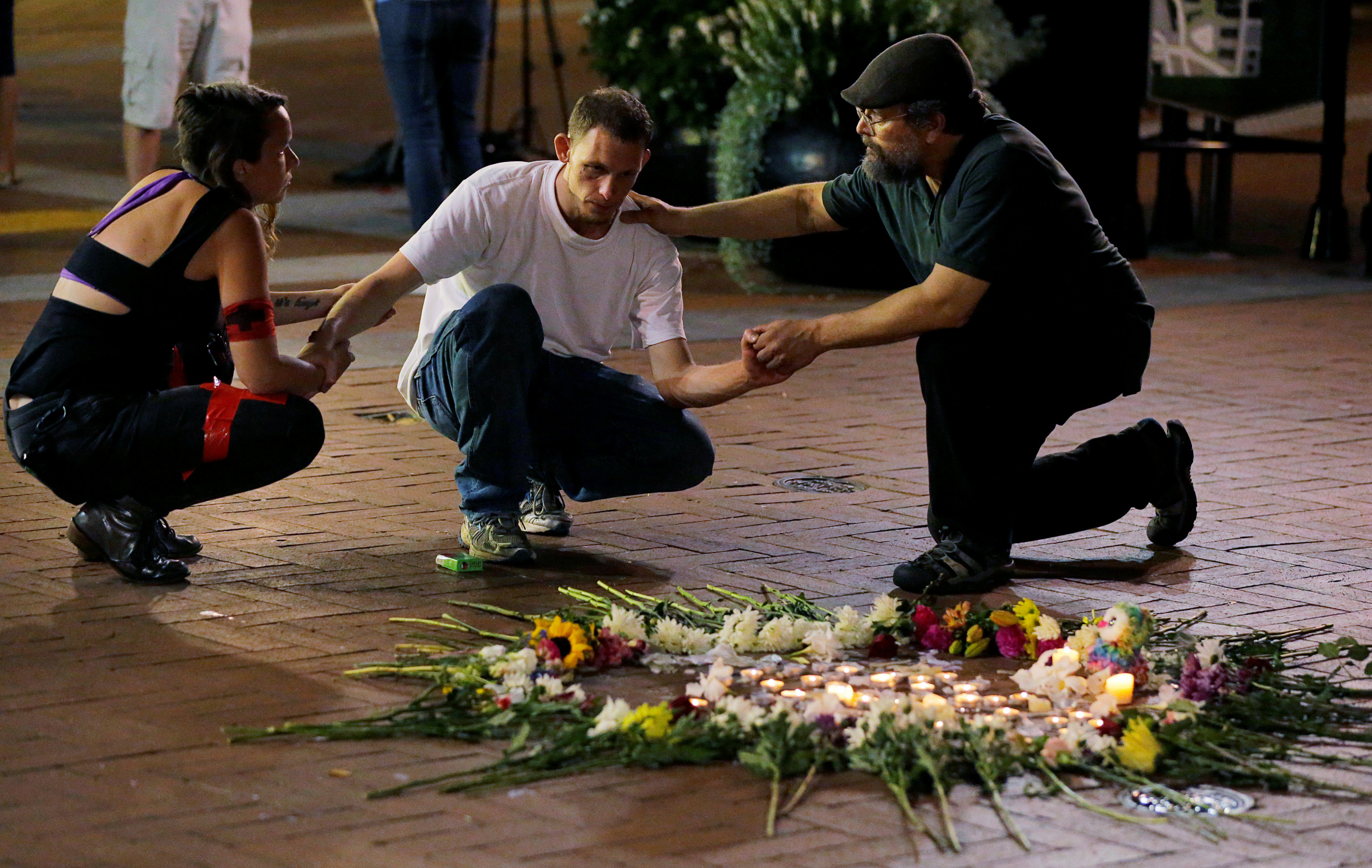
By Andrew Cawthorne and Victoria Ramirez
CARACAS (Reuters) – The Venezuelan government hunted on Wednesday for rogue policemen who attacked key installations by helicopter, but critics of President Nicolas Maduro suspected the raid may have been staged to justify repression.
In extraordinary scenes over Caracas around sunset on Tuesday, the stolen helicopter fired shots at the Interior Ministry and dropped grenades on the Supreme Court, both viewed by Venezuela’s opposition as bastions of support for a dictator.
Nobody was injured.
Officials said special forces were seeking Oscar Perez, 36, a police pilot named as the mastermind of the raid by the helicopter that carried a banner saying “Freedom!”
In 2015, Perez co-produced and starred in “Death Suspended,” an action film in which he played the lead role as a government agent rescuing a kidnapped businessman.
There was no sign on Wednesday of Perez, whom officials condemned as a “psychopath”, but the helicopter was found on Venezuela’s northern Caribbean coastline.
“We ask for maximum support to find this fanatic, extremist terrorist,” vice president Tareck El Aissami said.
The attack exacerbated an already full-blown political crisis in Venezuela after three months of opposition protests demanding general elections and fixes for the sinking economy.
At least 76 people have died in the unrest since April, the latest a 25-year-old man shot in the head near a protest in the Petare slum of Caracas, authorities said on Wednesday.
Hundreds more people have been injured and arrested in what Maduro terms an ongoing coup attempt with U.S. encouragement.
The attack fed a conspiracy theory by opposition supporters that it may have been a government setup and overshadowed other drama on Tuesday, including the besieging of opposition legislators by gangs in the National Assembly.
The helicopter raid also coincided with a judicial measure weakening the powers of dissident chief state prosecutor Luisa Ortega, who has emerged as a major challenger to Maduro.
“It seems like a movie,” said Julio Borges, leader of the opposition-controlled legislature, of the helicopter raid.
“Some people say it is a set-up, some that it is real … Yesterday was full of contradictions … A thousand things are happening, but I summarize it like this: a government is decaying and rotting, while a nation is fighting for dignity.”
Though Perez posted a video on social media showing himself in front of four hooded armed men and claiming to represent a coalition of security and civilian officials rising up against “tyranny,” there was no evidence of deeper support.
“CHEAP SHOW”
The government, however, accused the policemen of links to the CIA and to Miguel Rodriguez, a former interior minister and intelligence chief under Maduro and his predecessor Hugo Chavez, who recently broke with the government.
“I’m not at all convinced by the helicopter incident,” Rodriguez told Reuters on Wednesday, saying the figures behind Perez in the video looked like dummies and expressing surprise the helicopter could fly freely and also not injure anyone.
“Conclusion: a cheap show. Who gains from this? Only Nicolas for two reasons: to give credibility to his coup d’etat talk, and to blame Rodriguez,” he added, referring to himself.
Around the time of the attack, the pro-government Supreme Court expanded the role of the state ombudsman, a human rights guarantor who is closely allied with Maduro, by giving him powers previously held only by the state prosecutor’s office.
Opposition leaders described that as an attempt to supplant chief prosecutor Ortega, who has confronted both Maduro and the Supreme Court this year after splitting ranks.
The Supreme Court on Wednesday evening said it approved a measure blocking Ortega from leaving the country, freezing her bank accounts, and summoning her to a July 4 hearing to discuss whether she has committed “serious offenses.”
Adding to Venezuela’s tinder-box atmosphere, opposition supporters again took to the streets nationwide on Wednesday to barricade roads.
One opposition lawmaker, Juan Guaido, filmed himself bleeding from wounds he said were inflicted by rubber bullets.
Opposition supporters hope that cracks within government may swing the crisis their way, and have been delighted to see heavyweights like Ortega and Rodriguez oppose Maduro.
Their main focus is to stop a July 30 vote called by Maduro to form a super-body known as a Constituent Assembly, with powers to rewrite the constitution and supersede other institutions. Maduro says the assembly is the only way to bring peace to Venezuela, but opponents say it is a sham vote intended solely to keep an unpopular government in power.
“We can’t let July 30 happen, we mustn’t,” said children’s health worker Rosa Toro, 52, blocking a road with friends. “We’re being governed by criminals, traffickers and thieves,” added lawyer Matias Perez, 40, protesting with a plastic trumpet.
Government officials lined up on Wednesday to condemn the helicopter attack, insisting it was the work of a few individuals and not representative of wider dissent.
Foreign Minister Samuel Moncada complained about the lack of international condemnation of the attack, saying it contrasted with the barrage of foreign criticism of the government.
“In Europe it’s now eight at night, but we’ve not had any reaction from European Union countries,” he said of a bloc that has been strongly critical of Maduro in recent months.
The minister rejected accusations that the attack was carried out by the government for its own purposes.
“Who can believe we are that sophisticated? Sending someone to throw grenades, who can believe that?” he asked.
(Additional reporting by Eyanir Chinea, Silene Ramirez, Brian Ellsworth, Herbert Villaraga, Diego Ore, Corina Pons and Girish Gupta; Editing by Jeffrey Benkoe and Andrew Hay)







